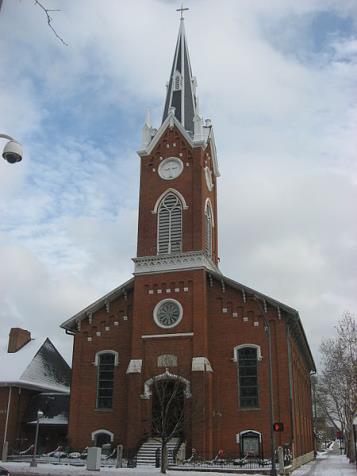
While German-speaking Lutheran congregations in America have long been agents for preserving a specific tradition, pressures for change are creating new dilemmas, writes Thorsten Wettich (University of Bremen, Germany) in the monthly Protestant journal Materialdienst der EZW (October). A researcher specializing in the study of German-speaking Lutheran congregations abroad, Wettich’s observations are based especially on the case of the Immanuel Lutheran Church, which serves Northeast Philadelphia and Lower Bucks County and is one of the 87 German-speaking congregations within the mainline Evangelical Lutheran Church in America (ELCA). Like many others, it offers services both in German and in English. While it is listed as a congregation abroad by the Evangelical Church in Germany (EKD), it does not receive financial support from abroad, in contrast to congregations such as St. Paul’s German Evangelical Lutheran Church in New York City, which is partly supported by the EKD. Recruiting new members is a challenge for such German-language communities—as is the promotion of diversity that is being encouraged by the ELCA.
Often the 40- to 60-year-old children of faithful congregation members no longer live in the same area, and there is no prospect of substantial numbers of German-speaking Lutherans immigrating, as was still the case in the 1960s. Moreover, the younger generations’ decreased church attendance is also felt. For some of those attending Immanuel, “God seems to be closer in the German language,” as a member of the congregation told Wettich. Members are attracted by what they can recognize as familiar, thus leading to a rather traditional form of worship. While some members welcomed the current minister’s decision to come nearer to the recommended ELCA practice of weekly Holy Communion by offering it twice a month instead of once, others remembered that it had been offered only on Easter and Christmas when they were children in Germany and felt that the change detracted from the special nature of the event. On the other hand, innovative ways of preaching had been requested when hiring the new minister. The ELCA would like to reduce the ethnic and national dimensions that have long been characteristic of Lutheran congregations in the U.S. The need for German-speaking services in American Lutheran congregations is declining, and the future of the German Evangelical Lutheran Conference in North America (DELKINA) is uncertain.
(Materialdienst der EZW, Auguststrasse 80, 10117 Berlin, Germany – www.ezw-berlin.de;Immanuel Lutheran Church, http://www.immanuelphilly.org/; DELKINA, http://www.delkina.org/en/)
